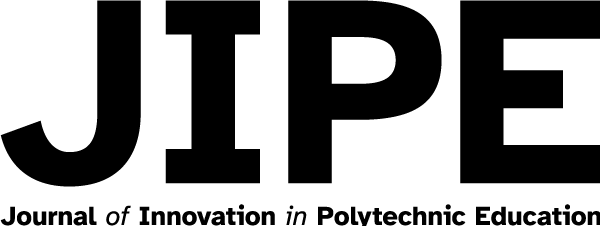Applied research should be at the forefront of innovation strategy
Successive governments have struggled to address Canada’s weak innovation performance. To solve our most pressing challenges — climate change, an aging population and inequality among them — new solutions are critical.
One thing is clear: Canada’s innovation shortcomings will not improve until its small- and mid-sized businesses are active contributors. Applied research is built to enable these contributions.
Read More > “Applied research should be at the forefront of innovation strategy”
PurposeApplied: Canada’s polytechnics launch collaborative campaign
October 12, 2021 (Ottawa) – Eleven of Canada’s polytechnic institutions have banded together to raise awareness of the differentiated value of a polytechnic model of education.
Read More > “PurposeApplied: Canada’s polytechnics launch collaborative campaign”
Skilled trades training in 2021: A polytechnic approach
Providing a hands-on, industry-aligned education has long been a priority for Canada’s polytechnics. Institutions are continually re-evaluating their approaches to training and course delivery, responding to industry demand and learner preferences. At the Northern Alberta Institute of Technology (NAIT), this evolution has reached skilled trades programming – one of the most traditional learning pathways on offer. The institution recently introduced a fast-track pathway to apprenticeship that includes a focus on employability skills identified by industry as critical.
Polytechnics Canada sat down with NAIT’s Dean of Skilled Trades, Matthew Lindberg, to discuss what’s changed.
Read More > “Skilled trades training in 2021: A polytechnic approach”
Polytechnics positioned to support federal Biomanufacturing Strategy
Late last month, the federal government announced a highly anticipated biomanufacturing and life sciences strategy. Building on commitments in Budget 2021, the strategy earmarks more than $2.2 billion over the next seven years to better prepare Canada for future pandemics. Five pillars – governance, research and talent, business investment, modernized regulation and public capacity to respond to health crises – form the basis of expansive efforts to revive Canada’s biomanufacturing capacity.
Read More > “Polytechnics positioned to support federal Biomanufacturing Strategy”
Digital Marketing: A micro-credential for the modern market
Upskilling and reskilling, especially when it comes to digital fluency, is becoming increasingly important as technology evolves and its influence on the Canadian labour market becomes ubiquitous. Polytechnics offer specialized short-cycle courses designed to provide businesses and mid-career workers with the tools and knowledge they need to succeed.
At Sheridan, professors Garrett Hall and Dr. Sujinda Hwang-Leslie have partnered with the Pilon School of Business and the Faculty of Continuing and Professional Studies to develop a digital marketing micro-credential that will be launched in fall 2021.
Read More > “Digital Marketing: A micro-credential for the modern market”
Why does Ontario need short, flexible credentials?
This is an excerpt from Pichette, J., Rizk, J., & Brumwell, S. (2021). Making Sense of the Micro: Building an evidence base for Ontario’s Micro-Credentials. Journal of Innovation in Polytechnic Education, 3(1), 10-14. This article has been republished with permission from the Higher Education Quality Council of Ontario.
Short, skill-focused courses and associated credentials are not new. Many employers and organizations have long offered in-house training and other informal learning opportunities for professional development and retention (Oliver, 2019). Powered, in part, by advancements in digital technology and evolving labour market demands, micro-credentials have emerged as a new form of focused learning with the potential to respond to both the modern hiring needs of employers and the training needs of adults looking to advance or pivot in the labour market.
Read More > “Why does Ontario need short, flexible credentials?”
Education and training infrastructure – a key piece to building the Canada we want
The latter half of 2021 is shaping up to be a period of hope: hope the pandemic is waning, hope the economy will rebound quickly, hope that massive public investments will set us up for a stronger, greener future. The role of government is to turn that hope into an ambitious vision, a well-considered plan and the pragmatic steps necessary to achieve it. Ideally, we use the lessons of the last 16 months to develop a forward-looking, sustainable strategy that seeks to build the Canada we want in 2050.
Read More > “Education and training infrastructure – a key piece to building the Canada we want”







